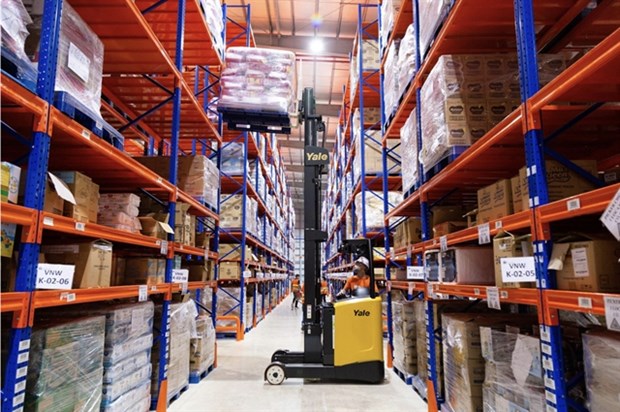Digital strategies to spur e-commerce: experts
Companies are expected to implement digital strategies to continue to reach customers, experts said while alluding to trends in the e-commerce market this year.
 |
| A logistic centre in HCM City. Companies are expected to implement digital strategies to continue to reach customers. (Photo courtesy of Shopee Viet Nam) |
Shopee, a leading e-commerce player in the country, in a note predicting trends this year, said: “The pandemic pushed businesses, from premium brands to micro-entrepreneurs, to quickly adopt digital strategies if they sought to reach customers amidst the lockdowns.”
As online selling becomes a growing revenue channel for brands and sellers, e-commerce platforms need to work with them to help engage their customers in a differentiated manner and grow their online presence, it said.
It cited its own example of working with POND's to integrate its AI-powered beauty tech solution, Skin Advisor Live into the online shopping experience, offering shoppers free personalised skincare analysis online to help them make a more informed buying decision.
POND's was also able to tap into Shopee’s engagement tools such as livestreaming to interact with its target audience.
There are more than 20,000 global and local brands on Shopee Mall, offering a wide selection of products ranging from everyday to premium items.
The company works closely with these brands to create new and unique shopping experiences.
The e-commerce market is expected to see more changes this year as the COVID-19 pandemic has brought about a broad, deep and irreversible shift to online for businesses and consumers.
Tran Tuan Anh, Managing Director of Shopee Viet Nam, said: “2020 was an especially transformative year for e-commerce. As consumers adhered to social distancing measures and stayed home, they turned to online platforms not just for their daily needs but also for entertainment and interaction.
“This led to online shopping evolving from a purely transactional experience to a more social experience, with e-commerce platforms integrating more interactive elements such as games and livestreaming to engage users. With advancements in technology, increasing internet penetration and a fast-growing population of young, tech-savvy youths and middle-income families, we expect e-commerce to play an integral role in the way we live, connect and do business.”
This year adoption of digital payments is expected to increase.
Digital payment is the preferred mode online, and as more people become accustomed to e-commerce, it will also drive the offline cashless movement.
While local governments’ have been moving towards a cashless society, the pandemic has greatly accelerated this need in a region where the majority of consumer transactions are made in cash. In line with movement restrictions and continued social distancing efforts, consumers and businesses have increasingly embraced digital payments for greater convenience and security.
For example, in addition to greater usage of AirPay in-app, the number of offline merchants in Viet Nam using AirPay also doubled in 2020, including like 7-Eleven, MyKingdom and Guardian.
The logistics sector is also expected to see changes.
Shopee predicted logistics would become even more important as consumers increasingly rely on e-commerce and have greater expectation of efficient delivery.
The increase in demand is particularly significant in the case of daily necessities and household essentials.
In Viet Nam, Shopee, which operates in several countries, saw a two-fold increase in food, health and home-related items shipped from the warehouse.
Brands and sellers need to make use of technology to ensure that parcels are delivered in a timely and cost-effective manner, and one way to achieve this could be to tap into the extensive and integrated networks of e-commerce platforms.
Shopee said it saw more brands tapping its logistics infrastructure with the result that the branded items shipped from its warehouses tripled last year.
Source: VNA